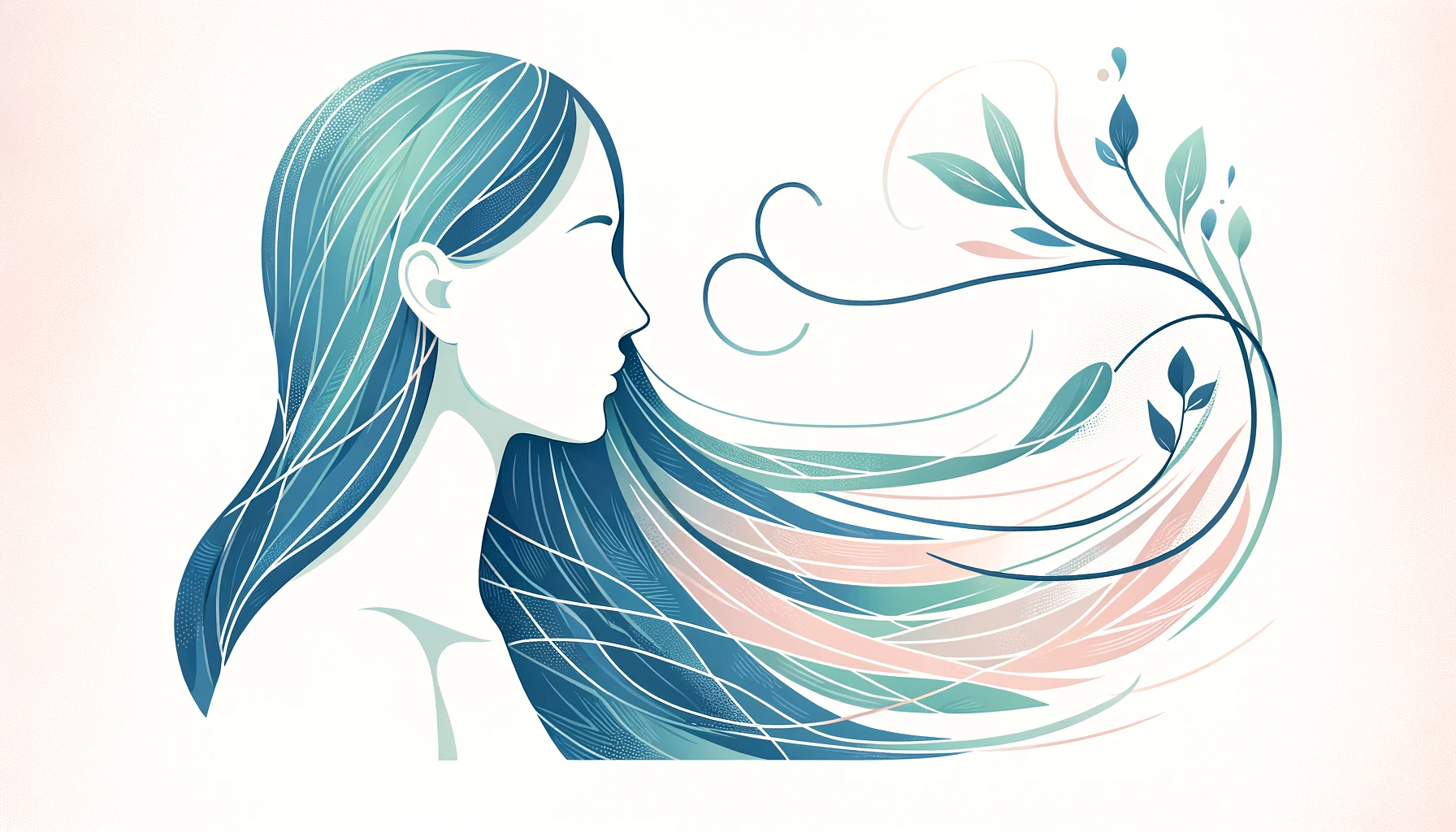Unraveling the Tangles: Understanding Female Hair Loss Causes
Introduction
Every strand of hair tells a story, one of beauty, identity, and sometimes, of change. For many women, hair is a symbol of femininity and self-expression, making the experience of hair loss deeply personal. It’s a story shared in whispers between the walls of salons and in the privacy of doctor’s offices. This isn’t just about vanity—it’s about self-image and the silent struggle that affects millions.
Hair loss in women, often shrouded in secrecy and overshadowed by the more talked-about male baldness, is finally stepping into the light. This blog post is an ode to understanding, a guide to the why and how of female hair loss. Here, we explore not just the roots but the emotional layers intertwined with every fallen strand.
As you read through, remember you’re not alone on this journey. So let’s untangle the myths, understand the causes, and look at the ways to navigate this winding path with grace and knowledge.
The Root of the Problem: Primary Causes of Hair Loss in Women

Understanding the underlying causes of hair loss can be as intricate as the patterns of a mandala. The reasons range from deeply genetic to situational, hormonal to environmental. Here, we delve into the primary causes, shedding light on this complex condition.
Genetics: A Strand’s Fate
Just like the color of your eyes or the shape of your smile, hair loss can be a trait passed down through generations. Female Pattern Hair Loss (FPHL), the female version of male pattern baldness, typically results in thinning hair across the scalp due to genetic predisposition.
Hormonal Havoc
Women’s lives are a symphony of hormonal fluctuations. From the onset of puberty to the ebb and flow of menstrual cycles, from the transformative time of pregnancy to the turning tides of menopause, each phase can affect hair growth. And sometimes, the very hormones that define these stages can lead to hair loss.
Stress: The Silent Shedder
Our bodies speak the language of stress in many ways, and hair loss is a silent whisper of this universal language. Emotional upheavals, such as the loss of a loved one or overwhelming anxiety, can trigger a temporary condition known as telogen effluvium, where hair shifts faster than usual from its growing phase to the shedding phase.
Medical Medley
Various medical conditions, such as thyroid disorders and autoimmune diseases like alopecia areata, manifest through hair loss. Additionally, certain medications for unrelated health issues can have the unintended side effect of hair shedding.
Lifestyle and Environmental Interactions

Our daily habits and the environment we live in can also influence hair health. Dietary deficiencies, harsh hair care practices, and exposure to certain elements can all play a role in the health of your hair.
Recognizing the cause is the first step to management. With a proper diagnosis, effective treatment plans can be established, tailored to the individual’s unique situation.
Common Misconceptions About Female Hair Loss
Myth: Only Men Suffer from Genetic Hair Loss
Reality: Female pattern hair loss is a reality for countless women. While it may present differently than in men, genetics can play a significant role in a woman’s hair health.
Myth: Hair Loss Is Solely a Sign of Aging
Reality: Hair loss doesn’t discriminate by age. It can be triggered by various factors at any stage in a woman’s life, including hormonal changes, medical conditions, and even certain hairstyles.
Myth: Cutting Hair Encourages Thicker Growth
Reality: Haircuts remove split ends and can give the appearance of fuller hair, but they do not influence the actual growth rate or thickness.
Myth: Wearing Hats Causes Hair Loss
Reality: Hats don’t cause hair loss. However, very tight headwear could potentially contribute to hair loss from constant pulling or traction.
Myth: Stress Is Just an Excuse
Reality: Stress has a profound impact on physical health and can indeed be a significant factor in hair loss, as it can disrupt the normal hair growth cycle.
By separating fact from fiction, we empower ourselves with the knowledge to seek the right treatments and make informed decisions about our hair health.
Seeking Professional Advice: Diagnosing Hair Loss
 When facing the challenge of hair loss, seeking professional advice is a crucial step. Understanding the root cause is essential for effective treatment, and a healthcare provider can guide you through this process with expertise and empathy.
When facing the challenge of hair loss, seeking professional advice is a crucial step. Understanding the root cause is essential for effective treatment, and a healthcare provider can guide you through this process with expertise and empathy.
Initial Consultation
Your journey begins with a detailed discussion about your hair loss history, lifestyle, diet, and any recent stressful events. Be prepared to answer questions about your family’s hair loss history, as this can provide valuable genetic clues.
Physical Examination
A physical examination of your scalp will reveal signs of inflammation, patterns of hair loss, and any underlying skin conditions. Sometimes, a simple ‘pull test’ can give insight into the severity of the condition.
Laboratory Tests
Blood tests can uncover nutritional deficiencies, hormonal imbalances, or thyroid issues. Understanding these underlying factors is vital in determining the right course of action.
Scalp Biopsy and Trichoscopy
In some cases, a small scalp biopsy or a detailed trichoscopic examination may be necessary to diagnose the exact cause of hair loss.
Tailored Treatment Plan
Based on the diagnosis, your healthcare provider will recommend a personalized treatment plan. This could range from topical treatments and medications to lifestyle modifications and nutritional guidance.
Remember, the sooner you seek help, the more effective the treatment can be. Don’t hesitate to reach out to a dermatologist or trichologist if you notice significant hair loss.
Conclusion
 Embarking on the journey of understanding and addressing female hair loss can be an empowering process. It’s about peeling back layers of myth, understanding the intricate interplay of genetics, hormones, and lifestyle, and ultimately, finding a path to well-being that respects the uniqueness of your situation.
Embarking on the journey of understanding and addressing female hair loss can be an empowering process. It’s about peeling back layers of myth, understanding the intricate interplay of genetics, hormones, and lifestyle, and ultimately, finding a path to well-being that respects the uniqueness of your situation.
Remember, hair loss in women is not just a cosmetic issue—it’s a complex interplay of health, emotion, and identity. It deserves attention and empathy. The journey to healthier hair can also be a journey towards better overall health and self-care.
If you’re experiencing hair loss, let this be a gentle nudge to seek professional advice. With the right care, support, and information, you can navigate this path with confidence and grace. Your hair’s story doesn’t end with hair loss—it’s just a new chapter waiting to be written, filled with insights and hope.
This journey is yours, and it’s beautiful in all its twists and turns. Keep walking it with your head held high.
Frequently Asked Questions
What are the most common causes of hair loss in women?
The most common causes include hormonal changes (such as those during menopause or pregnancy), genetic predisposition to female pattern hair loss, stress (physical or emotional), certain medical conditions like thyroid disorders, and side effects of medications
How does female hair loss differ from male hair loss?
Female hair loss typically presents as overall thinning, especially at the crown, rather than the receding hairline or bald spots more commonly seen in men. Women tend to retain their frontal hairline and experience diffuse thinning spread over the top of the scalp
Can lifestyle changes help prevent or reduce hair loss in women?
Yes, lifestyle changes can play a significant role in preventing or reducing hair loss. These include maintaining a balanced diet rich in essential nutrients, managing stress effectively, avoiding harsh hair treatments and styles that pull on the hair, and not smoking.
Are there effective treatments for female hair loss?
Yes, there are various effective treatments depending on the cause of hair loss. These can include topical treatments like minoxidil, hormone therapy, laser therapy, and in some cases, hair transplant surgery. A healthcare provider can recommend the most appropriate treatment based on the individual’s condition.
When should I see a doctor about hair loss?
It’s advisable to see a doctor if you notice sudden or patchy hair loss, more hair than usual coming out when brushing or washing, thinning hair without any identifiable cause, or if the hair loss is accompanied by other symptoms like changes in your menstrual cycle, fatigue, or unexplained weight loss. Early diagnosis can lead to more effective treatment.





